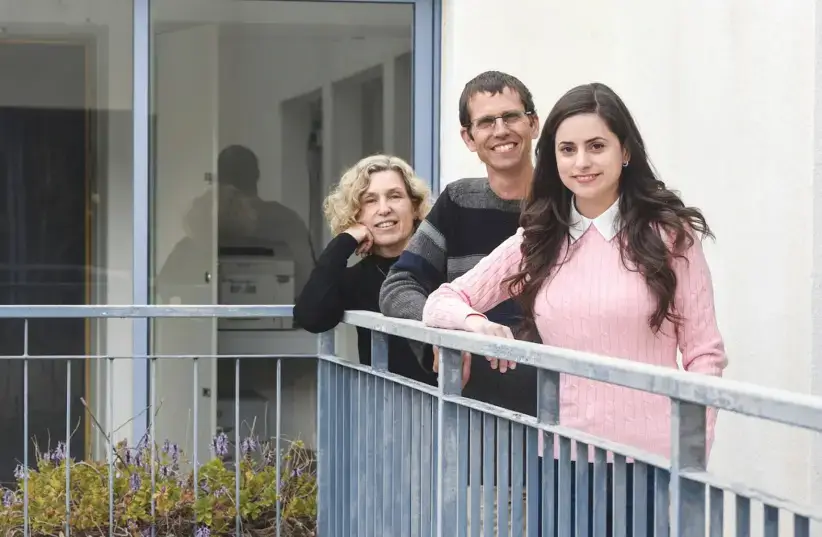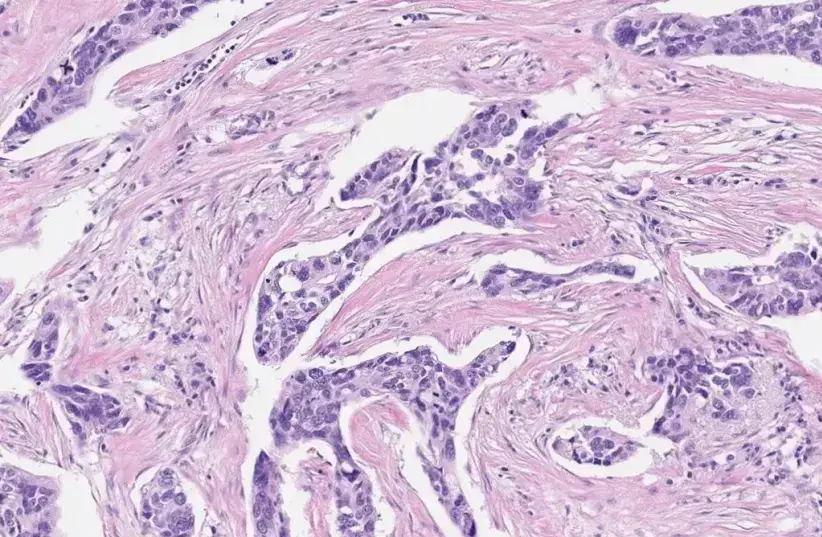
What makes it possible for cancer cells to spread and flourish despite radiotherapy, surgery to remove the initial tumor, chemotherapy and immunotherapy?

(photo credit: Rami Shelush, Technion spokesperson’s office)
Cancer cells may be brainless, but they are as clever as chess players who want to win. They know how to spread (metastasize) to other parts of the body. It is this “skill” that makes malignant tumors the most common cause of death in Israel.
But what makes it possible for such cells to spread and flourish despite radiotherapy, surgery to remove the initial tumor, chemotherapy and immunotherapy?
A novel explanation
Researchers at the Technion-Israel Institute of Technology in Haifa have just published an article on the subject in iScience, an interdisciplinary open-access journal with continuous publication of research across the life, physical, and earth sciences, titled “Cancer progression as a learning process.”
Aseel Shomar, a Nazareth-born doctoral student in biochemical engineering who is on an Adams Fellowship, together with Prof. Omri Barak and Prof. Naama Brenner, suggested a novel explanation in the hope that better understanding should lead to better treatment.
They propounded the idea that cancer cells are able to learn and adapt to changing environments by actively searching for solutions that would enable them to survive. Studying cancer using this approach and tools of learning theory will advance our understanding of these phenomena, they said.

It is commonly thought that both drug resistance and the ability to metastasize appear in cancer cells as random mutations. Since such a mutation gives cancer cells an advantage, making it possible for them to survive in an environment that struggles to fight them, these mutations become dominant.
However, mounting evidence from research groups around the world does not seem to match this hypothesis, and treatment plans based on it did not significantly increase patients’ life expectancy.
But now, the Technion team members have proposed a new hypothesis that matches the evidence at hand: cancer cells learn and adapt to their environment, enabling them to develop drug resistances and conform to the new environments of metastasis locations.
How does a cell learn without a brain? Brenner explained that when sensing stress, the cell seeks to reduce that pressure and launches a trial-and-error process within the gene regulatory network, changing the way existing genes are expressed. An interaction that reduces the stress gets strengthened.
Even so, considering the number of possible configurations the cell can try, it seems unlikely that the process would work. However, using computer simulations based on learning theory, the group showed that cells could in fact learn and adapt in this fashion.
One element of what makes this feasible is that more than one solution can be found to solve the same problem faced by the cell. Another element is the way the gene regulatory network is structured, with regulatory “hubs” that control parts of it.
Malignant cells are not unique in their learning ability, they said. Brenner, Prof. Erez Braun and others have shown in the past that yeast cells can adapt to new environments and develop abilities they did not initially possess.
Few other labs around the world have demonstrated this effect in simple organisms.
A rare type of discovery
Learning theory – a process that brings together personal and environmental experiences and influences for acquiring, enriching or modifying one’s knowledge, skills, values and behavior – develops hypotheses that describe how this process takes place and provides the mathematical tools to study these phenomena.
The Technion’s Network Biology Research Lab studies the way various biological systems adapt, which is a process that is not fully understood.
Its researchers – who come from a variety of faculties including physics, electrical and computer engineering, chemical engineering and medicine – seek to connect theoretical models to complex and dynamic biological systems.
While tumors that learn and adapt might sound alarming, the Haifa authors were optimistic. While cancer cells have the capacity for learning, normally something holds it back.
In fact, the same mutations found to promote cancer in our body can be carried by cells that still remain healthy. Even cells from active tumors that wander into healthy tissue were in some experiments “cured,” reverting to their non-cancerous state.
“There is an interaction between the individual cell and the tissue,” Brenner noted. “The cell has the capacity to explore, but the tissue imposes order and stability. We propose that using the approach and methods of learning theory will help investigate this interaction in greater depth.
“Cancer could perhaps be treated through strengthening the tissue’s ability to calm and control the pre-cancerous cell.”
Most scientific studies add a brick to build the wall of discovery, but this finding is one of a rare type that reexamines existing data and proposes a new framework, offering answers to questions that had until now remained unanswered and opening up new avenues of exploration, they concluded.
